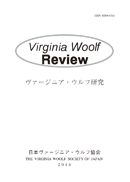8 巻
選択された号の論文の9件中1~9を表示しています
- |<
- <
- 1
- >
- >|
-
原稿種別: 本文
1991 年 8 巻 p. 1-15
発行日: 1991/09/30
公開日: 2017/07/08
PDF形式でダウンロード (982K) -
原稿種別: 本文
1991 年 8 巻 p. 16-29
発行日: 1991/09/30
公開日: 2017/07/08
PDF形式でダウンロード (970K) -
原稿種別: 本文
1991 年 8 巻 p. 30-47
発行日: 1991/09/30
公開日: 2017/07/08
PDF形式でダウンロード (2477K) -
原稿種別: 本文
1991 年 8 巻 p. 48-63
発行日: 1991/09/30
公開日: 2017/07/08
PDF形式でダウンロード (1081K) -
原稿種別: 本文
1991 年 8 巻 p. 64-66
発行日: 1991/09/30
公開日: 2017/07/08
PDF形式でダウンロード (236K) -
原稿種別: 本文
1991 年 8 巻 p. 66-71
発行日: 1991/09/30
公開日: 2017/07/08
PDF形式でダウンロード (458K) -
原稿種別: 本文
1991 年 8 巻 p. 71-75
発行日: 1991/09/30
公開日: 2017/07/08
PDF形式でダウンロード (380K) -
原稿種別: 付録等
1991 年 8 巻 p. 76-78
発行日: 1991/09/30
公開日: 2017/07/08
PDF形式でダウンロード (107K) -
原稿種別: Appendix
1991 年 8 巻 p. 79-82
発行日: 1991/09/30
公開日: 2017/07/08
PDF形式でダウンロード (138K)
- |<
- <
- 1
- >
- >|
